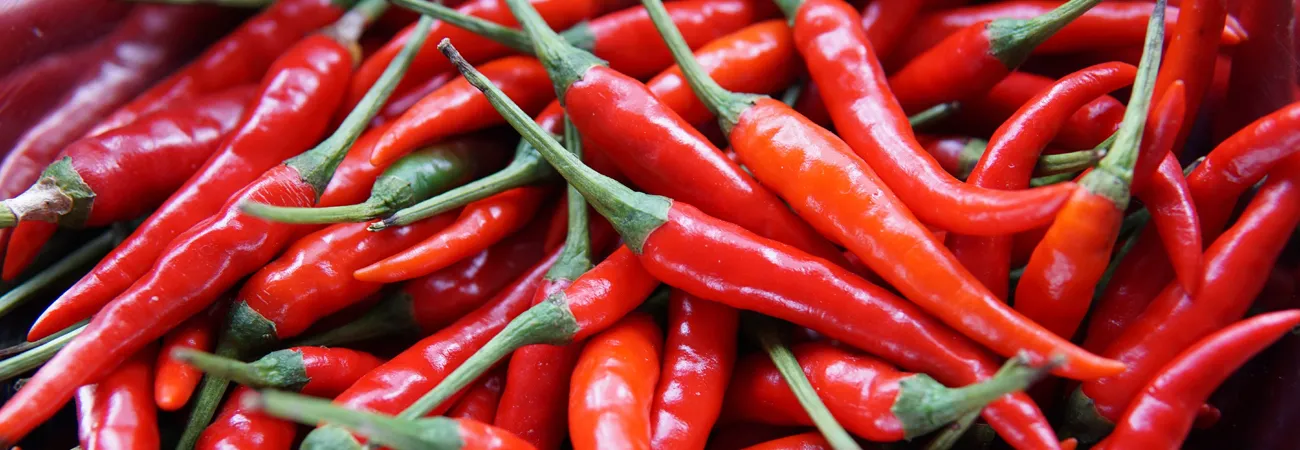i ECONOMY
The collaboration between Pakistan and China for cultivation of high-yielding red chili of vibrant colors in Sindh has started yielding results, as the first shipment of red chili has been exported to China. With the help of a Chinese company’s expertise, Kunri Research Institute developed Kunri-I and Nageena varieties of chili that yielded 25-30 percent more than the previous ones. Caretaker Sindh Chief Minister Justice (retired) Maqbool Baqar sent off the first shipment, saying the two countries have a vast potential for trade, cooperation and industry-level partnership. Chili is grown over more than 143,000 acres producing approximately 144,000 tonnes. Sindh contributes about 80 percent to the national production. Umarkot, Badin, Mirpurkhas, Thatta, Jamshoro, Sanghar, Tando Allahyar, Tando Muhammad Khan, Dadu and Shikarpur districts are used for production of red chili. China’s involvement in contract farming, employing modern technology, and providing training to local farmers has helped unlock Pakistan’s potential for high-quality chili production.
The project’s success on model farms, yielding 700 tons of dried chilies, underscores the promising prospects of this collaboration. Agriculture, accounting for 23 percent of Pakistan’s GDP and employing 37.4 percent of the national labor force, remains a pivotal sector. The country’s agricultural eminence is underscored by its position as the world’s 4th largest exporter of rice, now expanding its exports to include dried red chilies to China. The recent years have witnessed a decline in dried red chili exports from Pakistan, prompting strategic collaboration with China under the China Pakistan Economic Corridor (CPEC). The successful implementation of a 2021 pilot project testing chili cultivation in Pakistan laid the foundation for this remarkable achievement. Last year, the floods in Sindh dealt a huge blow to chili farmers. In a province heavily dependent on agriculture, extreme climate conditions are hitting the rural economies hard. In an interview with WealthPK, Dr Mubarik Ahmed, consultant agriculture and food at the Trade Development Authority of Pakistan (TDAP), said that using modern techniques helps us manage phytosanitary and meet the food safety requirements of the importing countries by addressing the issues of aflatoxin and pesticide residues. He added that the Authority is planning to help local farmers in installing more chili dryer units.
Credit: Independent News Pakistan (INP)









